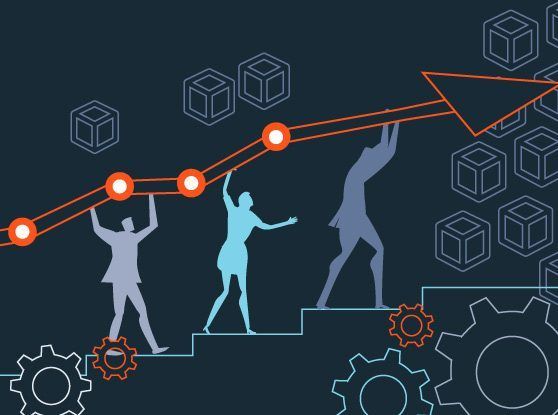In 2014, a number of cabinet-level federal government agencies created a Chief Data Officer role, distinct from their CIO or CTO. As an example:
- The Department of Transportation became the first cabinet agency to hire a Chief Data Officer, hiring Daniel Morgan.
- Secretary Penny Pritzker announced the creation of a Chief Data Officer position as part of her larger strategic focus on data, and hired Lynn Overmann from the White House as the Department of Commerce’s new Deputy Chief Data Officer.
- The Department of Energy posted a CDO role on USAJobs.com.
- The USDA created a Chief Data Officer role, with Deputy CIO Bobby Jones currently serving as Acting CDO.
- The Center for Medicare and Medicaid Services (a division of Health and Human Services) recently created a Chief Data Officer role, promoting Niall Brennan to lead a newly created Office of Enterprise Data and Analytics.
In addition, a number of independent agencies, like the FCC and Federal Reserve, have created Chief Data Officer roles. Why the big push? Secretary Pritzker has a great rationale: “There is so much more potential to tap — and more data to be unleashed — that will strengthen industry and expand economic opportunity for millions of Americans…. Put simply, our Chief Data Officer will hold the key to unlocking more of our government data.” President Obama has been clear that opening up government data should be a priority for federal agencies — and that government can be an open platform for private sector innovation. He said at TechShop in Pittsburgh: “[T]he federal government possesses incredible amounts of data. And one of the things that we’ve been doing a lot with the high-tech community is thinking about, with proper restrictions to protect privacy and so forth, are there ways for us to generate some of this big data that then ends up being the platform by which we can come up with applications on a smartphone. Essentially, all the weather apps that you have on your phone are all based on data that the government collected — the National Weather Service.” If government agencies are going to act as open platforms, shouldn’t they follow the lead of platform companies like Facebook, Google, Salesforce, and aspiring tech platform start-ups? Whether those companies call it Developer Relations, API Evangelism, or Platform Marketing, they all focus on creating an ecosystem of companies and developers to build on top of their platform — and on getting valuable feedback about how to make that platform even more useful. Federal agencies should do the same. I’d argue that a Chief Data Officer should focus on two areas:
- Externally. A CDO should be the chief evangelist for an agency’s data assets, attending conferences, meet-ups, and hackathons to evangelize the most compelling and interesting data resources. A CDO should also work with the existing public engagement unit inside a federal agency, to create better public feedback loops. Frequent feedback from traditional and non-traditional users of government data will help agencies prioritize their efforts to unlock data for the most social and economic value.
- Internally. A CDO needs to work across an agency, to ensure the organization is treating data as a strategic asset. A CDO should establish an agency-wide data governance policy and oversee its implementation, working closely with the Chief Privacy Officer and the Chief Information Security Officer. A CDO should also take charge to develop a useful enterprise-wide data inventory, and work to share data across the (often siloed) bureaus and offices to solve problems for federal employees and ultimately the American people.
But why another “chief” role? Can’t the CIO or CTO handle this? CIOs are busy managing large IT organizations and their contractors. CIOs should focus on building citizen-focused digital services, moving to the cloud, and protecting against cyber threats. CTOs vary across government, but in my mind, should focus on innovation and exposing the organization to new ideas, technologies, and people. As DJ Patil and Hilary Mason write in their great new eBook, Data Driven: Creating A Data Culture, “the CDO/CDSO is responsible for ensuring their organization is data-driven.” Whatever we call the role — Head of Data? — it’s clear to me that a dedicated person is needed. Or better yet, a small dedicated team. Let’s make 2015 the year of the Chief Data Officer. Nick Sinai is an inaugural Walter Shorenstein Media and Democracy Fellow at the Harvard Kennedy School’s Shorenstein Center on Media, Politics and Public Policy. Nick is also a Venture Partner at Insight Venture Partners, a global software, data, and technology venture capital and private equity firm. He is a former U.S. Deputy Chief Technology Officer at the White House. Prior to joining the Obama administration, Nick was a venture capitalist at Lehman Brothers Venture Partners (now Tenaya Capital) and previously, Polaris Partners.










